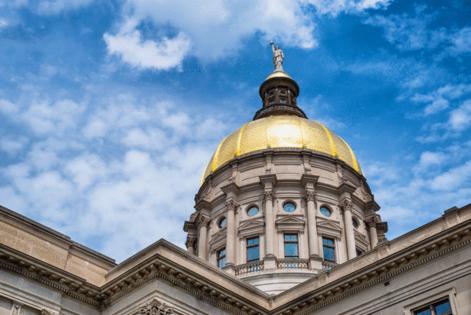Former CDC workers and leaders testify at Georgia state Capitol
Published in News & Features
ATLANTA — In a dramatic meeting at the Georgia Capitol on Tuesday, eight former leaders and employees of the Atlanta-based Centers for Disease Control and Prevention — including top leaders who resigned en masse last week — vented their deep concerns for the nation’s health and the safety of CDC employees under Trump administration policies.
Answering questions posed by the state representatives and senators whose districts fall in the CDC area, the group hammered home the unprecedented nature of what they see happening — and the danger it poses.
Dr. Debra Houry, former chief medical officer of the CDC until she participated in the group resignation last week, said she and her colleagues in senior leadership had learned about the CDC’s changed COVID-19 vaccination guidance while in a meeting and saw a video posted on social media.
“It doesn’t have to be this way, right?” asked Tom Simon, former senior director for scientific programs in CDC’s Division of Violence Prevention.
Tuesday’s gathering was the first group appearance since the top resignations made global news last week.
It took place as Health and Human Services Secretary Robert F. Kennedy Jr. has made a series of decisions upending vaccine policies and leading to pharmacies across the nation tossing aside long-standing vaccination rules.
Kennedy is poised this month for perhaps his biggest move yet: He said he expects his handpicked team to release a report on the causes of autism, led by prominent vaccination skeptic David Geier, who has been sanctioned for practicing medicine without a license.
Dr. Dan Jernigan, the former director of the CDC’s National Center for Emerging and Zoonotic Infectious Diseases, said his scientists normally would have been deeply involved in helping such a team understand the data — what is there, what it says, what it’s missing.
This time, they’re not even talking about how they’re going to use it, something Jernigan said he has never seen before.
Dr. Tony Fiore, a former CDC epidemiologist who has held leadership positions there, said CDC leaders always felt previously that, in good times and bad, staff could work closely to understand how to advance a new presidential administration’s goals and “make good public health happen.”
“Something has changed here,” Fiore said.
Simon, former senior director for scientific programs in CDC’s Division of Violence Prevention, pointed out the consequences of abandoning work on strategies to prevent gun violence.
He highlighted recent incidents such as the Minnesota school shooting where there were signs of trouble beforehand. Simon also talked about prevention tactics the CDC works on, such as the gunstoragemap.com site — a voluntary, temporary gun storage network to separate a troubled person from firearms for a while.
“All of those investments in research and programs are at risk in the president’s budget,” which is the next big spending bill up for debate in Congress right now, Simon said. “I just want to say that this is unique in the federal government.
“If CDC doesn’t work on upstream approaches to violence prevention, then it just isn’t happening.”
But as they met for a news conference after Tuesday’s meeting, some Kennedy supporters crashed the photo op. One, Melinda Hicks, said the people at the podium dismissed concerns like hers.
“I’m a MAHA mom,” she said, noting a friend of hers died from a brain bleed after being vaccinated. She said she does not believe scientists take devastating events like hers seriously.
Each of the CDC scientists mentioned the silence from the White House on the subject of the Aug. 8 CDC shooting, saying that silence is a message the action was tolerated.
Dr. Barbara Marston, a former CDC employee who left before the current Trump administration took office, has been networking with current and recently fired employees and described them hiding in the building as they realized they were the shooting targets.
They were distressed at the lack of “any statement from the White House about an attack on a federal building,” Marston said. “And they are devastated.
“In our work, we operate in unsecure locations. We’ve experienced bombings, stabbings and gun violence. But those situations were so different, because in those situations, the U.S. government was our shield, not a source of harm.”
Rep. Saira Draper proposed Georgia pass a law to work with other states to approve vaccines scientifically.
_____
©2025 The Atlanta Journal-Constitution. Visit at ajc.com. Distributed by Tribune Content Agency, LLC.







Comments